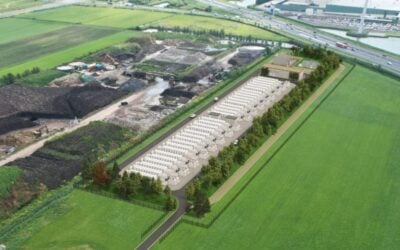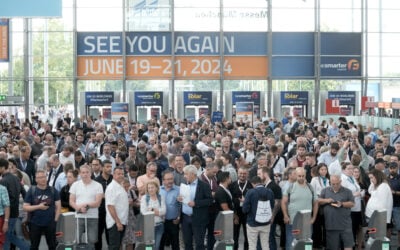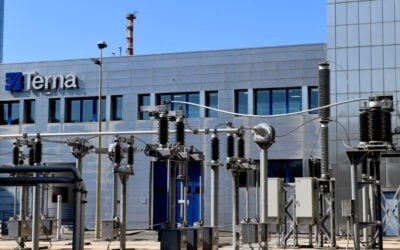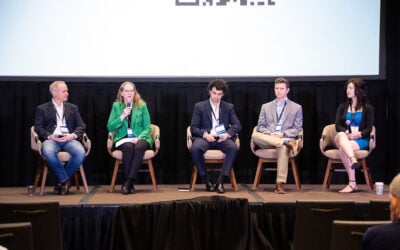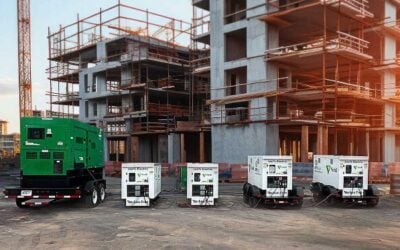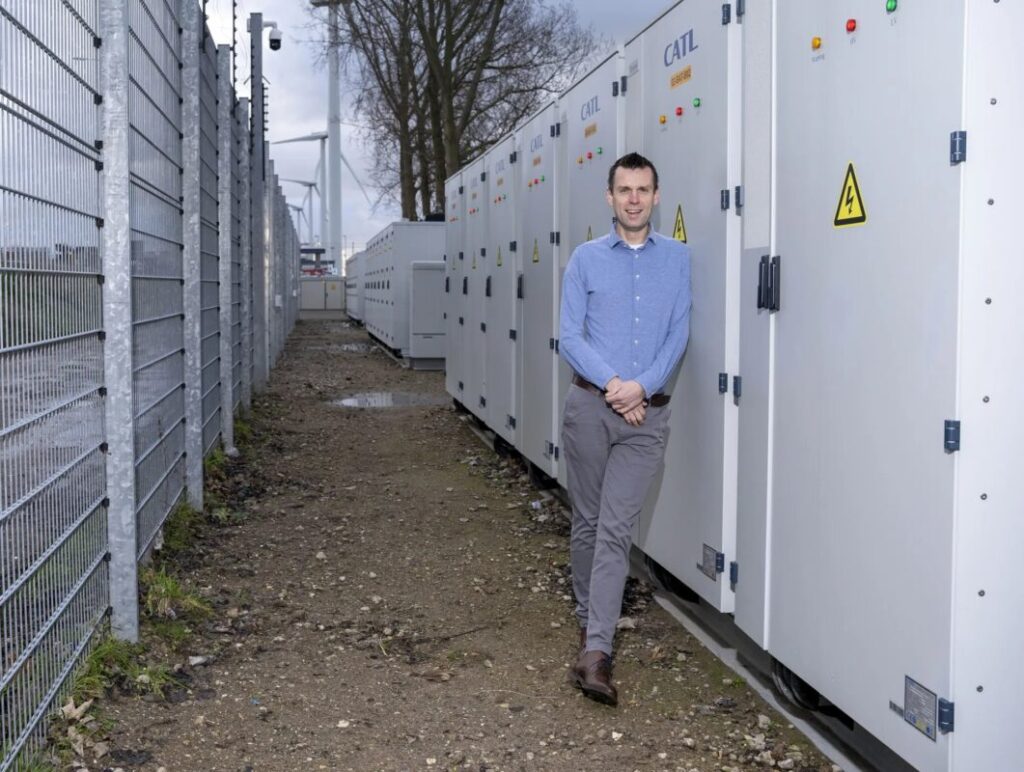
A 10MW/10MWh battery energy storage system (BESS) at a wind park in the Netherlands has been relocated to a new site as part of a repowering project.
The BESS was sited next to Wind Park Hartel 2, a 24MW wind power plant comprising 3x 8MW turbines at the Port of Rotterdam. The battery storage was installed in 2018 by Dutch battery storage system integrator and electric vehicle (EV) infrastructure provider Alfen.
Enjoy 12 months of exclusive analysis
- Regular insight and analysis of the industry’s biggest developments
- In-depth interviews with the industry’s leading figures
- Annual digital subscription to the PV Tech Power journal
- Discounts on Solar Media’s portfolio of events, in-person and virtual
Or continue reading this article for free
At the time it went into service, as reported by Energy-Storage.news in 2019, it was the Netherlands’ largest battery storage system at a wind farm and equal in size and capacity to the country’s largest standalone BESS facility, although since has been superseded by other co-located and standalone projects.
Alfen announced on 24 March that the system has been upgraded and relocated to the site of Hellegatsplein, a 12MW wind farm about 50km away.
Hellegatsplein features a charging hub where 10x 336kWh (3.36MWh) mobile battery containers were supplied by mobile BESS solutions provider Greener Power Solutions in 2020. The batteries charge directly from the wind turbines’ output and a further 12 mobile containers were later added.
Coupled with software from Spectral Energy Solutions, the containers had enabled the Hellegatsplein wind farm to participate in Frequency Control Reserve (FCR) ancillary services markets and send automated messages to the transmission system operator (TSO) Tennet.
Renewable energy and natural gas utility company Greenchoice and project developer Green Energy Storage have worked together on both wind farm, and with Alfen on the stationary battery storage projects. Sustainable bank Triodos has served as financing partner.
“Investing in storage solutions like this is crucial if we want to make the most of wind and solar energy,” Greenchoice director of sourcing and portfolio Maurice Koenen said.
“By giving batteries a second life and designing systems that can adapt to changing needs, we’re making renewable power even more sustainable.”
‘Innovation, flexibility and reuse’ of legacy system
Alfen said the skid-mounted design of its BESS was crucial to the success of the relocation, allowing for the battery storage system to be removed relatively easily for maintenance or, as in this case, taken to another site.
Adding the larger system at Hellegatsplein will allow it—still using Spectral’s software solutions coupled with Greenchoice’s in-house IT systems—to deliver a suite of ancillary services including FCR, automatic Frequency Restoration Reserve (aFRR) and manual Frequency Restoration Reserve (mFRR).
Meanwhile, after the removal of the legacy 10MW/10MWh system, Greenchoice’s Hartel Wind Park 2 has been retrofitted with a 20MW/40MWh Alfen BatteryElements BESS solution.
Speaking earlier in March, Koenen had emphasised that the addition of batteries to absorb and smooth the fluctuating output of solar PV and wind power plants, outputting it to the grid during peaks in demand, would help keep customers’ electricity bills lower.
“We built the original system in 2018, and now we’ve not only scaled it up but we also found a second life for the older batteries at a new location. This kind of innovation, flexibility and reuse is exactly what we need to make the energy transition more efficient,” Alfen commercial director for BESS Stephanie Schockaert said of the relocation project.
Netherlands market in growth phase
The Netherlands energy storage market has seen significant growth in the past 18 months, with recent changes to grid fees for battery systems improving the business case. Along with Benelux neighbour Belgium, it was mentioned among current markets of interest for developers in Europe (Premium access) in a panel discussion at the Energy Storage Summit EU in February, albeit not considered as hot as front runners like the UK, Germany and Italy.
RWE recently commissioned its first 35MW/41MWh standalone BESS project in the northern European country, and the German utility has a smaller grid-forming BESS asset in construction.
The Netherlands’ biggest project currently under construction is thought to be a 31.6MW/126.4MWh asset in the province of Flevoland, owned by consortium FlevoBESS, investor GreenPowerBank Dronten and green energy utility Pure Energie along with 400 local shareholders. Alfen is also supplying BESS technology to that project, while trader Eneco will optimise it in electricity markets.
Other, much larger projects are in the works, however, including a 1.4GWh project in the northern region of Vlissingen, on which developer Lion Storage reached financial close in February with financing from a consortium of six banks.

